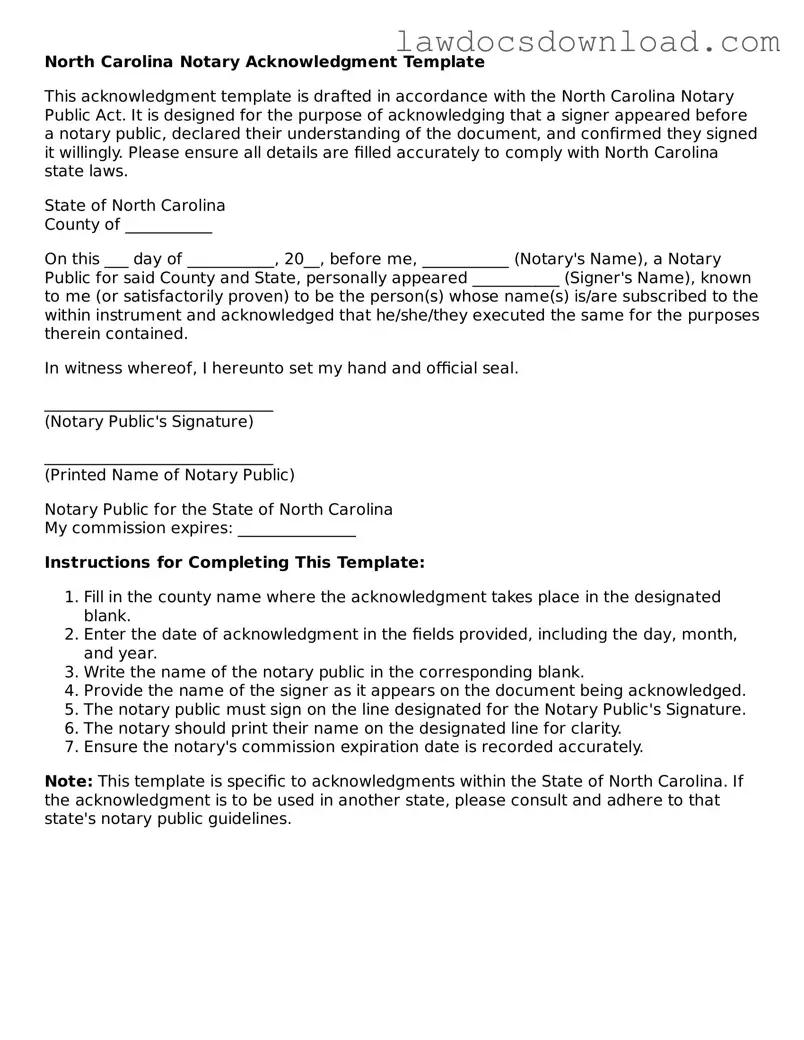Legal North Carolina Notary Acknowledgement Form
The North Carolina Notary Acknowledgement form is a crucial document used to verify the authenticity of a signer's signature on important documents. It serves as an official recognition by a notary public that the signer appeared before them, understood the document, and signed it willingly. This process adds a layer of trust and legality, making the document more credible in legal transactions.
Launch Notary Acknowledgement Editor Here

Legal North Carolina Notary Acknowledgement Form
Launch Notary Acknowledgement Editor Here

Launch Notary Acknowledgement Editor Here
or
Free Notary Acknowledgement
Get this form done in minutes
Complete your Notary Acknowledgement online and download the final PDF.